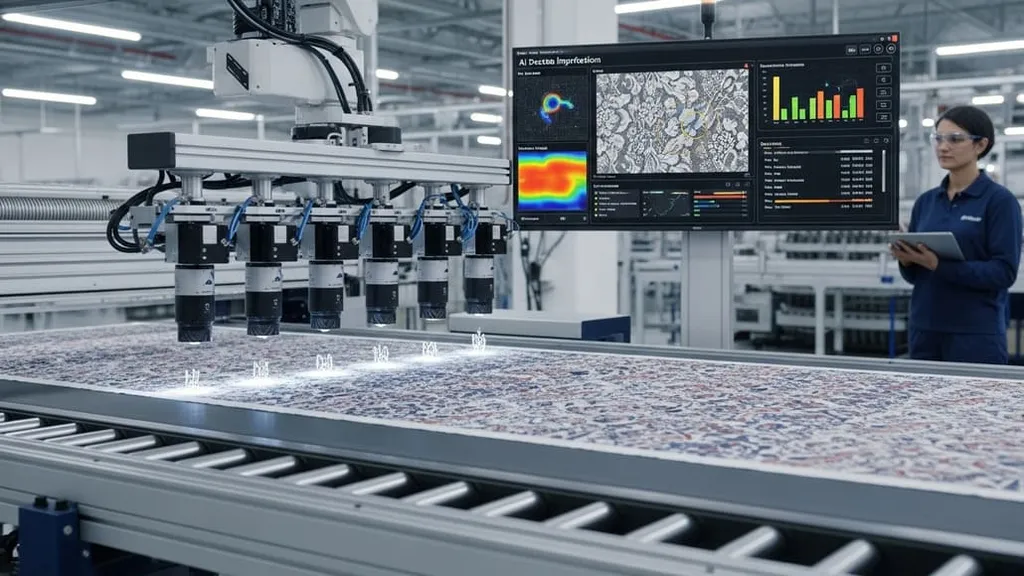In the heart of Karachi, Pakistan, a groundbreaking development is weaving its way through the textile industry, promising to revolutionize fabric inspection and quality control. Noreen Akram, a researcher from the Department of Electronic Engineering at NED University of Engineering and Technology, has led a study that could redefine the future of textile manufacturing, aligning seamlessly with the principles of Industry 5.0 and contributing to global sustainability goals.
The study, published in the journal “Materials Research Express” (which translates to “Expressions of Materials Research”), focuses on optimizing a deep learning model to classify fabric weave patterns with remarkable accuracy. The model, an enhanced version of ResNet50, is fine-tuned using Particle Swarm Optimization (PSO) to adjust hyperparameters like learning rate and momentum. This optimization process significantly boosts the model’s classification accuracy, reaching an impressive 98.32%.
Akram explains, “Our optimized model demonstrated superior performance compared to other state-of-the-art models like CNN, ResNet201, Mobilenet, and VGG16.” This enhanced accuracy translates to a more efficient and reliable fabric inspection system, reducing the time and resources traditionally spent on manual inspection.
The implications for the textile industry are profound. Real-time fabric classification can streamline production processes, reduce waste, and ensure consistent product quality. As industries worldwide strive to adopt sustainable practices, this technology offers a scalable and intelligent solution that aligns with several Sustainable Development Goals (SDGs).
Moreover, the study contributes a comprehensive dataset of fabric images captured with a digital microscope, providing a valuable resource for future research in textile weave studies. Akram’s work not only advances the field of neural networks and deep learning but also paves the way for more efficient and sustainable textile manufacturing practices.
As the world moves towards Industry 5.0, characterized by increased human-machine collaboration and a focus on sustainability, Akram’s research offers a glimpse into the future of textile manufacturing. By integrating intelligent systems like the optimized ResNet50 model, industries can achieve higher efficiency, better quality control, and a reduced environmental footprint.
In the words of Akram, “This technology is not just about improving classification accuracy; it’s about creating a more sustainable and efficient future for the textile industry.” As we look ahead, the potential applications of this research extend beyond textiles, offering insights into how similar technologies can be applied to other sectors, driving innovation and sustainability across the board.

